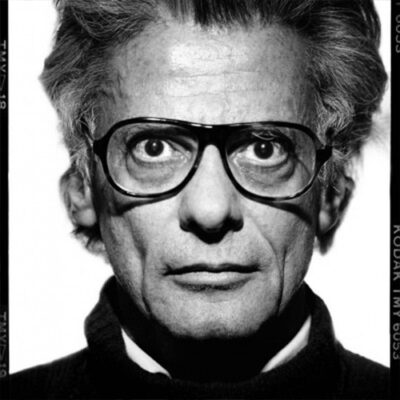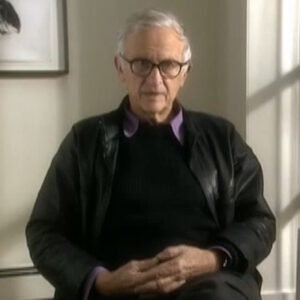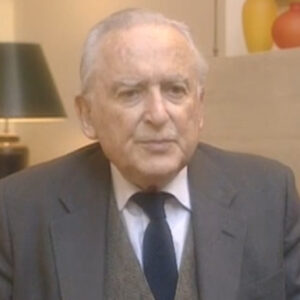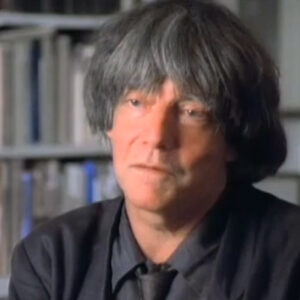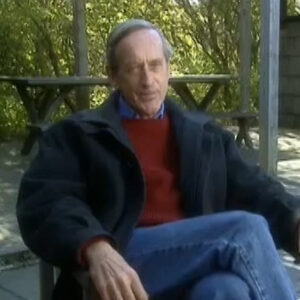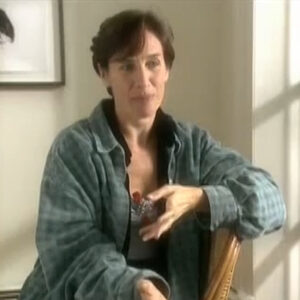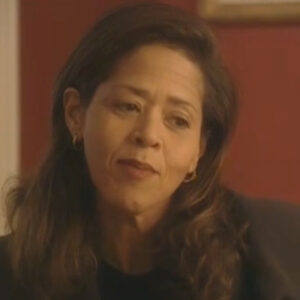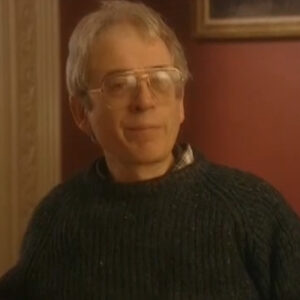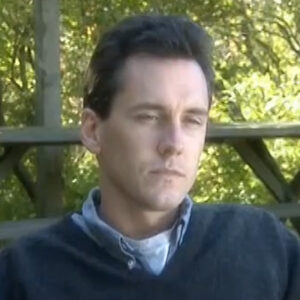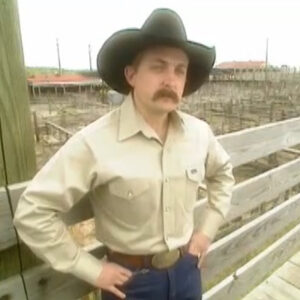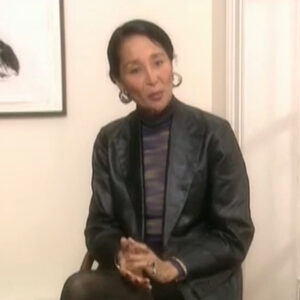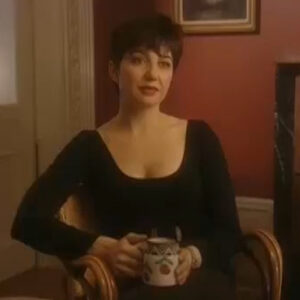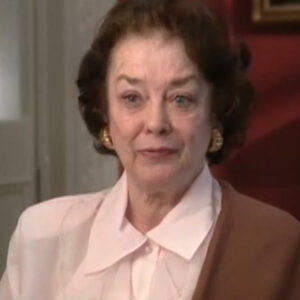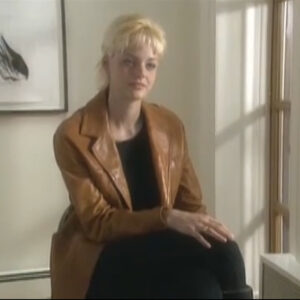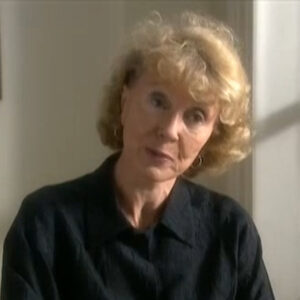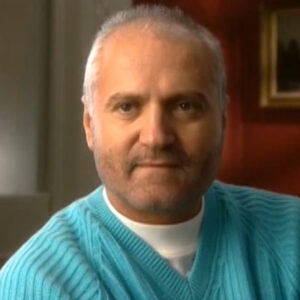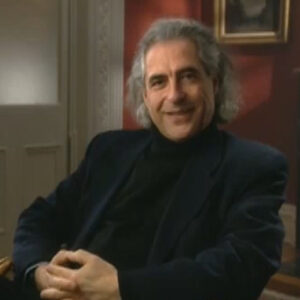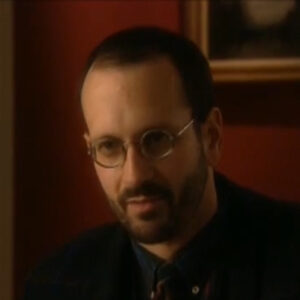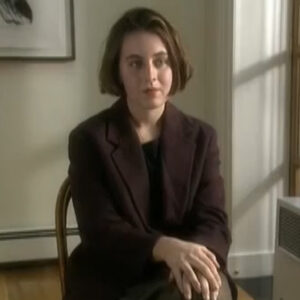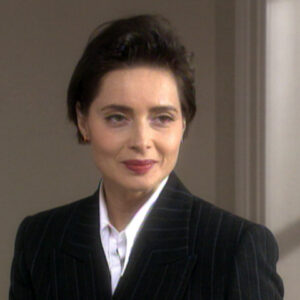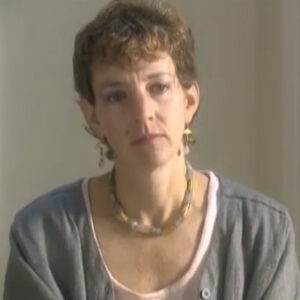Speaker I thought, here’s somebody who hasn’t touched in 20 some odd years and we’ll never teach again. And it’s an opportunity of a lifetime. And he’s an absolute master. And why not? I didn’t know that well before, but I knew I knew how smart he was.
Speaker So I didn’t even think about it. I just did it and hoped, you know, I just applied and hope that I got it. And I really didn’t expect to.
Speaker What do you think? He responded to it. Work hard to.
Speaker You know, he knew what I needed to change. I don’t know that he. Well, no, that’s not true. He’s always liked my work. Something about it. But I might have told you this before. It comes from a very traditional portraiture that he is trying to get away from.
Speaker So maybe he just sense that he could help me, which he did immediately.
Speaker I don’t know how much he takes credit for in the fact that we’ve come so far in what seems like a short amount of time, but I don’t I’m not alone.
Speaker I mean, I can you know, even the people that don’t say to me how much he’s helped them, it’s so obvious.
Speaker Specifically, has he helped you with Alexandra? He changed my life as well as my photography was very extreme, but lots of photography. Just physically. What did you feel one should be forced to change? Altered height, loosened up.
Speaker It’s my idea about what I was looking for is so different now. It’s opposite almost. I mean, he talks about wanting to find a moment at rest or without without artifice or something. So he’s trying to pare down. I sort of feel like I’m trying to get away from that. You know, I. I would always wait for someone to come to a moment of rest. And I think I am waiting for the absolute opposite thing now. So, I mean, in terms of looking at my own work, in terms of looking at other people’s work, and I mean, it’s it’s sort of in the sense that opposites are similar, you know. I mean, it’s so opposite that it’s almost it’s almost come full circle, you know, to me would be a little clearer for everybody.
Speaker About.
Speaker I don’t know. I think I might have used this phrase before, but I don’t know how else to say it.
Speaker It’s a photography for me is this is a is getting in rhythm.
Speaker And it used to I used to be looking for the downbeats. And now I’m looking for the upbeats. But there’s so I don’t know how to explain this.
Speaker Why describe the pictures that he responded to so strongly that he referred to the bathtub pictures and what he saw and then what they were? And the first part, I think a little bit of a introduction to it the first. So we know what it is. My questions will be taken out. In other words, first.
Speaker But you really responded to saw something exciting in the following. And we can take it from there. Can you describe that? I mean, I’ve tried. They make a complete sentence out of it, so we know what we’re talking about, those pictures and he was from.
Speaker People, I think, have brought these pictures to class.
Speaker He asked us all to do self portraits and. I took these pictures that really scared me because they were nothing like anything I’ve ever done before, they were nothing like anything I’d seen before and they weren’t. And it was frightening to see myself in that way. So initially, I sort of didn’t really want to shown them. I mean, I just sort of I put one up on the board that was sort of safe and we were about to skip over it. And then he made me show him the contact sheets and he said, You have really moved. And.
Speaker I don’t know how to describe them there. They’re very naked. I mean, literally what I was doing was taking a bath. But I mean, they’re they’re about. They’re there about the fine line between violence and sexuality.
Speaker I mean, now that’s a that’s intellectualising after the fact. You know, that’s not what they were about when they were being done. But he was he said that he thought they were really good because I wasn’t looking through the camera and therefore I didn’t have the kind of control that I had always had assaulted.
Speaker Thanks a lot. You’re only good when you don’t look through the camera.
Speaker I don’t know how to describe how it how it happened or what he said that triggered it. It was just like all of a sudden everything comes together.
Speaker What will we see if you saw those bathtub pictures as they were in front of us? Making sense of what they were doing was responding. Just not the metaphore, but physically, what were they? But what we see. You were lying in a bathtub.
Speaker They’re cut off. I mean, I was in different positions and moving a lot, and the water is sort of dark and scary looking and my hair’s wet and it’s from sort of from all shot from above. So, you know, like the top of my head is missing, my feet are missing, or there’s sort of three quarter body shots, most of them, but. They’re not very flattering.
Speaker You know, they’re not about. I wasn’t taking care of my own feelings about how I wanted to look at a picture because my mind was when I.
Speaker You know, my idea going into it was very simple. But what happened was very complicated. So I was so taken with that that.
Speaker I don’t think I had I wasn’t worried about being seen. I wasn’t thinking about the result. I was thinking about the experience.
Speaker How did you keep waiting for this plane? I know I was safe.
Speaker How did you feel yesterday? And describe those pictures to us and how you experienced what he said.
Speaker I feel like it’s a dream. I can remember a thing. I mean, I tried to say to myself this morning, what do people say? And I have no idea. I mean, it just it seems like a. As you know, everyone was very complimentary and everything, but I don’t remember anything that was really said to you.
Speaker But I think a little bit story of. We know more questions to be out. What brought these pictures up and its response. So their response were just good. You’ll be standing on your own story.
Speaker I’ve been photographing newborn babies and I showed them in class yesterday and.
Speaker I have no idea what the response was.
Speaker The range of emotion and those small babies faces and I think that were contrasted to Susan Spencer’s mom. Yeah, that was annoying. Talk about about that and what you know, again, that heightened emotion that he liked in the drama of the many extraordinary variety of of emotions that he saw each and every one of those.
Speaker Well, he’d seen some of them before. And he said he described them to someone and said they were babies in distress and I sort of was annoyed because I thought that that was it, that he hadn’t really seen them. I didn’t even think the ones that only the ones that he had seen were about that. So. But yesterday he seemed to really see that it was broader than that.
Speaker I mean, I remember the debate that we had about whether this was a social issue or a human humanistic issue or.
Speaker But that that seemed like an intellectual thing that didn’t seem really about those pictures.
Speaker But there’s something looser about those pictures, like the term pictures that than anything I’ve done before and loosening up was the operative word.
Speaker What you seem to want to do with your work is that a fair description first started.
Speaker I think that’s what he wants everyone to do. Right. Particularly in my case, when my framing was so tight and so organized and so controlled. I think he feels that about portraiture in general, that it’s too formal and.
Speaker So, yeah, I was he particularly wanted me to get out of that box, but I think he wants that to be the new direction.
Speaker I mean, he he.
Speaker You know, he insists that that one do something that hasn’t been done before and that was never an issue for me before I worked with him. I didn’t think that was important because I wasn’t trying to be an artist, because I didn’t think that I knew I had a knack, but I didn’t think that I was going to change photography. And his his feeling is you can’t mess around.
Speaker You know, either you’re going to do photography and you’re going to make it into something that it was never able to be before or forget.
Speaker You know, it’s like it’s not like don’t waste my time and don’t don’t waste its time. You know, I mean, it’s in some way it’s it’s a disrespect for photography, just to repeat.
Speaker Probably the quality of mothers work that he responded to so powerfully.
Speaker So she was so generous, she did change her hair.
Speaker Did you know him growing up early?
Speaker Not not personally. No, I mean, he’s always been very close with my family, but I would hear stories about him, but I didn’t I didn’t know him.
Speaker Do you think it’s being a powerful experience for everybody in the class? Absolutely.
Speaker I talk about that, including my sentence. Your answer? Remember, I’m not.
Speaker I think he’s touched every one of us in a really profound way. You know, it’s just a different. Everybody’s had a different time clock.
Speaker And it’s it’s just it’s harder to succeed at it as it is to fail. I don’t think anyone has escaped either one. And in some way, it’s just as upsetting and difficult for him to like your pictures is for him not to like, you know, when he when he really responds to something, it’s just terrifying, you know? What do you do next? You know, how can you possibly top that? And when he doesn’t like your work, you think, why am I doing this anyway? You know, so.
Speaker But I think everyone’s grown enormously.
Speaker A picture he has a such strong feelings about. I know what originated in your class. I’d love you to talk about. Talk about the setting itself, because I’m I’ve already told this doesn’t seem worth. No, I end and I’m talk to him at length about it. I don’t want to talk about the picture.
Speaker So.
Speaker I just I mean, I think he realizes that that picture has provokes considerable debate. And I think he likes that. I mean, that no one feels the same way about it. I certainly don’t. And I’ve been very clear about it with him. Also, my take on it that someone has provoked me as it’s provoking other people, because as it’s proposed, everybody does seem to want to push you.
Speaker But I think that what he likes about that picture is that there is a lot of heat around it.
Speaker Oh, sure. He loves controversy.
Speaker I told them I didn’t want to talk about it.
Speaker I didn’t know about that particular. Can you describe it to Alex? Very funny riff that you did about it, though. You did create this bulletin board or what was it?
Speaker Oh, we after they took the pictures, Stephanie pulling up her dress over to expose her crotch, we Billy and I decided to recreate the photograph, to tease him.
Speaker So Billy did this picture of me standing in this pool all soaking wet with my nightgown sticking to my body and I’m pulling it up and needless saying, look, nothing like her, but you can tell what we were trying to do.
Speaker And and we made it into a newspaper. It was like the cover of The New York Times, complete with the type and the headlines and all the headlines were sort of inside jokes about things that had happened during the class. And Billy’s name is Billy Cunningham, like the photographer for The Times. His name is Bill Cunningham. So all the credits. I mean, it was really true to form was quite elaborate. But the big headline was Dick Shoots Bush.
Speaker So we are pretty proud of that.
Speaker I mean, it’s the kind of thing that he does for his friends, these of Labra involved stories and jokes and gifts and references to things. And I mean, as though life were a big adventure for, you know, it was always your surprise party or something, you know?
Speaker What was his response?
Speaker Oh, he loves it. He loves. I think he stuck it up in his bedroom.
Speaker His friends do talk about that quality in him, which is to turn something ordinary into an event.
Speaker You see that played out when you’re here in the class or your own friendship with him. That’s. Taking something magical, sometimes big or dramatic. Out of a small amount.
Speaker I think everything he does is more elaborate than the way most people do things. I mean, everything is always more.
Speaker And let me think of an example.
Speaker I mean, it’s as though everything is an excuse to make a fuss over something, you know, as if it were someone’s birthday or he just he’s just like a little kid, you know?
Speaker Pretty good that comes from what’s the impulse behind the.
Speaker I don’t know, maybe he’s it’s not interesting to him. You know, life, just mundane life is maybe just doesn’t interest him that much. He likes everything to be a big deal. Again, this eagerness and his delight, he’s just so I mean, that’s very genuine. It’s like the the fuss that’s made about everything seems contrived. But the but his, you know, pleasure through it all. That’s real.

